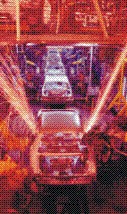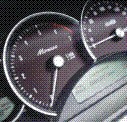|
Arbitration
and Mediation are two of several areas of dispute
resolution that compromise Alternative Dispute Resolution
(ADR). |
|
::
Our Services |
Mediation
- Generally, the Mediator (s) are selected by
the Parties rather than assigned as mentioned
previously.
- The Mediator (s) acts as a Facilitator; that
is, he/she (s) guides the Parties in the process.
The ultimate decision-makers are the Parties.
The Parties decide themselves the appropriate
outcome.
- All Parties maintain the right to participate
fully whether or not they are represented.
- Rules of evidence are more relaxed than in
a court of law.
- The hearing facility may be agreed upon by
the Parties.
- The right of appeal remains present albeit
restrictive since the Parties themselves determined
the settlement.
Arbitration
- In many arbitration proceedings, the Parties
to a Claim select the Arbitrator (s). In a court
of law, a judge is assigned to a case.
- The Arbitrator (s) is the ultimate decision-maker.
In some circumstances, one Arbitrator might hear
a matter; normally, three (3) Arbitrators are
assigned.
- All Parties to an arbitration have the right
to participate whether or not represented by Counsel.
If you are part of the problem, you should be
part of the solution!
- Rules of evidence are more relaxed than in a
court of law.
- The hearing facility may be at an attorney's
office, a hotel room, a municipal building such
as a public library or any other place agreed
upon by the Parties.
- The Arbitrator (s) decision is appealable but
for more restricted reasons than those of a court
of law.
Litigation
- A judge or jury is the ultimate decision-maker.
- The Complainant (s) [plaintiff] or Respondent
(s) [defendant] can only be heard when on the
witness stand. Furthermore, they are not entitled
to ask questions.
- The siting is a court of law: a place usually
unfamiliar, causes anxiety and often intimidating
to attorneys and clients alike.
- Strict rules of law, procedure and evidence
are followed.
- The court decision, especially a non-jury civil
trial, may take several weeks or longer.
- The court decision is appealable only for specific
legal issues.
|
|

 |
